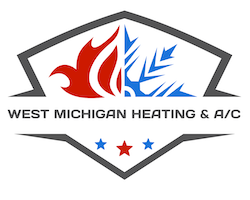
We spend a lot of time indoors. As a matter of fact, the Environmental Protection Agency (EPA) has estimated being within a building comprises 90% of our time. Having said that, the EPA also has determined your indoor air can be three to five times dirtier than outdoors.
That’s due to the fact our houses are securely sealed to boost energy efficiency. While this is fantastic for your heating and cooling expenses, it’s not so fantastic if you’re a part of the 40% of the population with respiratory allergies.
When outdoors ventilation is limited, pollutants including dust and volatile organic compounds (VOCs) can get stuck. As a consequence, these pollutants may aggravate your allergies.
You can boost your indoor air quality with crisp air and usual housework and vacuuming. But if you’re still struggling with symptoms when you’re at your residence, an air purifier might be able to provide assistance.
While it can’t eliminate pollutants that have settled on your couch or carpet, it can help freshen the air moving around your residence.
And air purification has also been scientifically proven to help lower some allergic symptoms, according to the American College of Allergy, Asthma and Immunology. It can also be helpful if you or a family member has a lung condition, such as emphysema or COPD.
There are two kinds, a portable air purifier or a whole-home air purifier. We’ll examine the differences so you can learn what’s correct for your home.
Whole-House Air Purifier vs. Portable Air Purifiers
A portable air purifier is for a lone room. A whole-house air purifier accompanies your HVAC system to purify your full house. Some models can purify on their own when your HVAC equipment isn’t on.
What’s the Best Air Purifier for Allergies?
Look for a model with a High Efficiency Particulate Air (HEPA) filter. HEPA filters are used in hospitals and deliver the greatest filtration you can find, as they trap 99.97% of particles in the air.
HEPA filters are even more useful when installed with an ultraviolet (UV) germicidal light. This mighty mixture can eliminate dust, dander, pollen and mold, all of which are standard allergens. For the ultimate in air purification, consider a system that also has a carbon-based filter to decrease household odors.
Avoid buying an air purifier that makes ozone, which is the top element in smog. The EPA cautions ozone might irritate respiratory troubles, even when discharged at minor settings.
The Allergy and Asthma Foundation of America has made a listing of questions to consider when getting an air purifier.
- What can this purifier take out from the air? What doesn’t it extract?
- What’s its clean air delivery rate? (A better figure means air will be cleaned more rapidly.)
- How frequently does the filter or UV bulb need to be changed]? Can I do that without help?
- How much do new filters or bulbs cost?
How to Lessen Seasonal Allergy Symptoms
Want to have the {top|most excellent|best] outcome from your new air purification system? The Mayo Clinic recommends doing other steps to decrease your exposure to seasonal allergy triggers.
- Stay inside and keep windows and doors sealed when pollen counts are heightened.
- Have other family members cut the lawn or pull weeds, since these jobs can worsen symptoms. If you are required to do these chores on your own, consider trying a pollen mask. You should also bathe without delay and put on clean clothes once you’re done.
- Avoid hanging laundry outdoors.
- Turn on the AC while at your house or while driving. Consider using a high efficiency air filter in your residence’s heating and cooling system.
- Equalize your residence’s humidity levels with a whole-house dehumidifier.
- Hardwood, tile or linoleum are the ideal flooring types for decreasing indoor allergens. If your house has carpet, install a HEPA filter on your vacuum cleaner.
Let Our Pros Handle Your Indoor Air Quality Necessities
Want to move forward with adding a whole-house air purifier? Give our specialists a call at 616-971-6428 or contact us online to get an appointment. We’ll help you find the right unit for your residence and budget.


